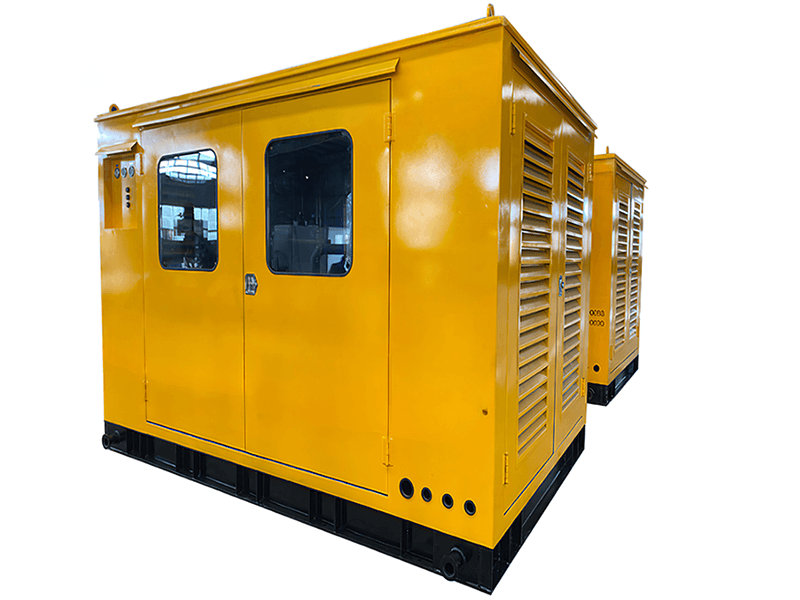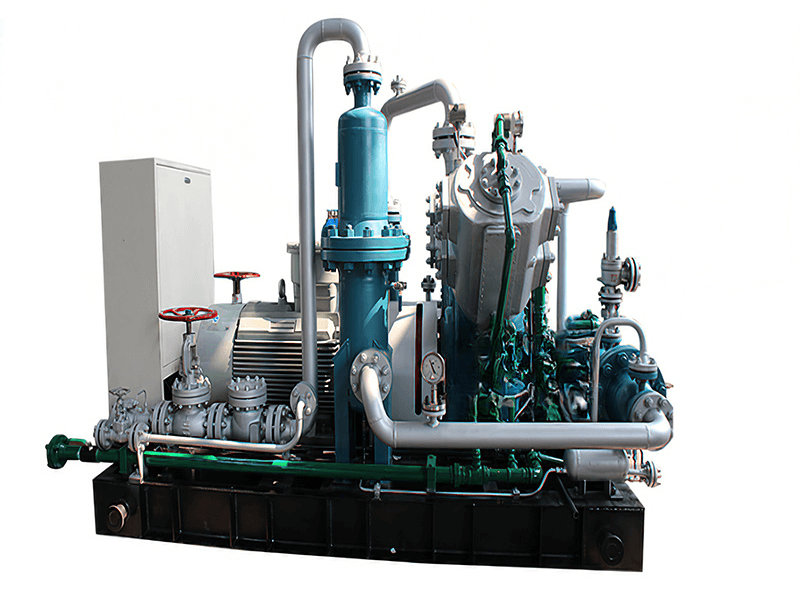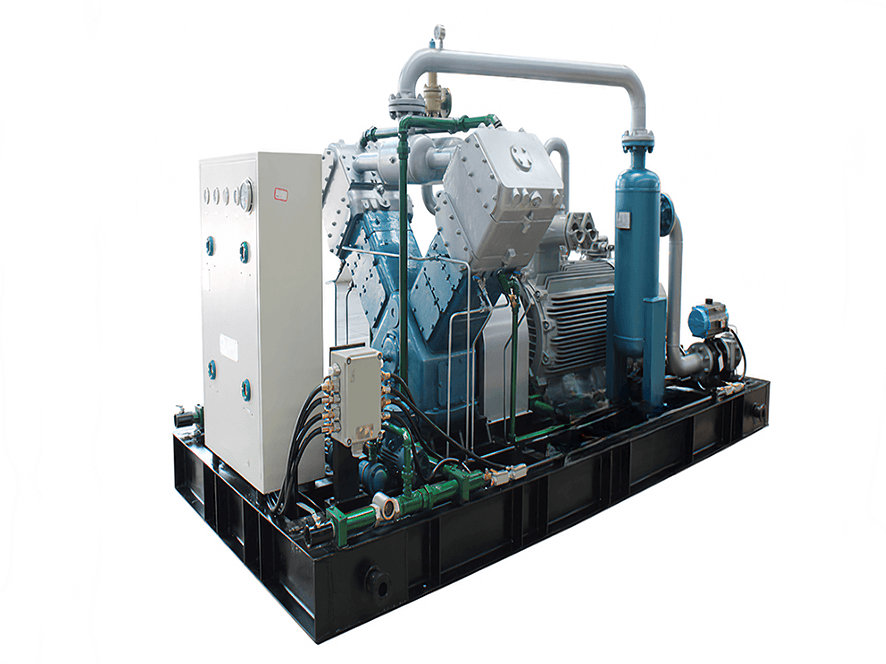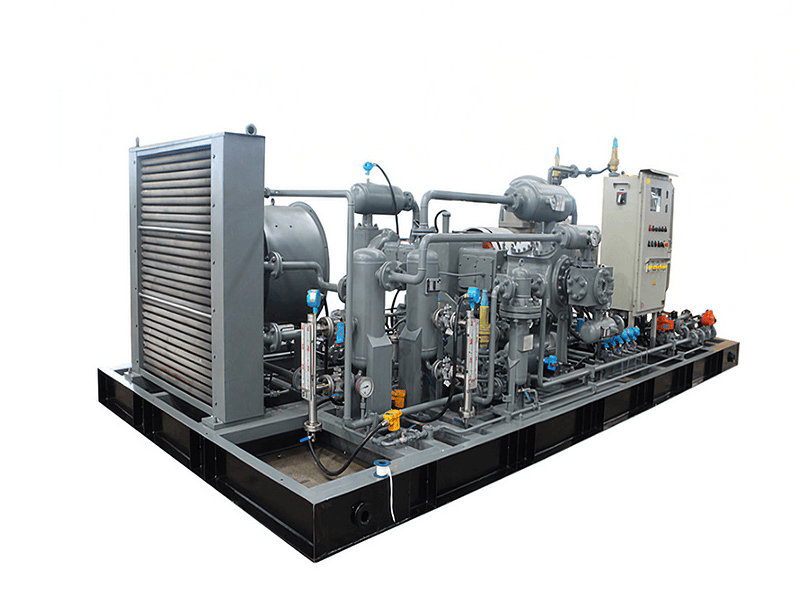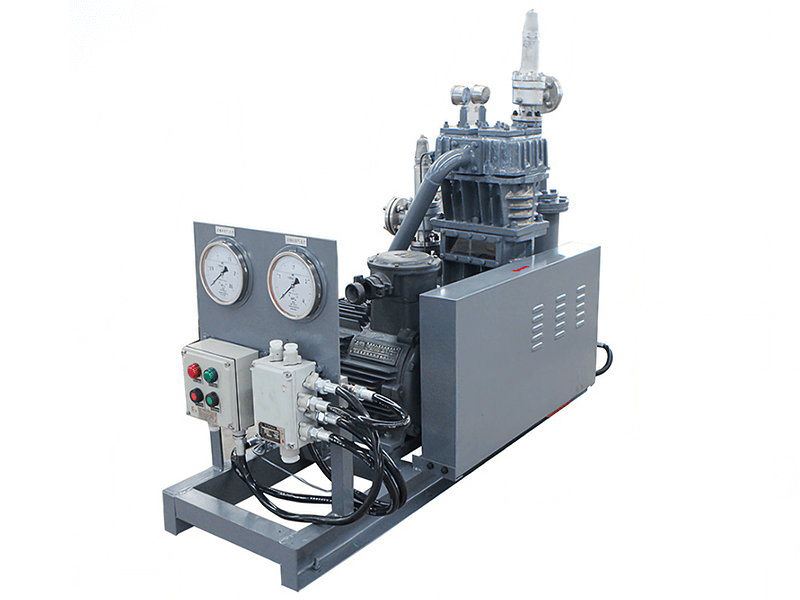【猫咪社区(catmunity)】最新入口
-

Components and cost range of a chlorine compression system
Jul 09, 2024 -

Types of gases found in oil fields and features of oil field compressors
Jul 13, 2024 -
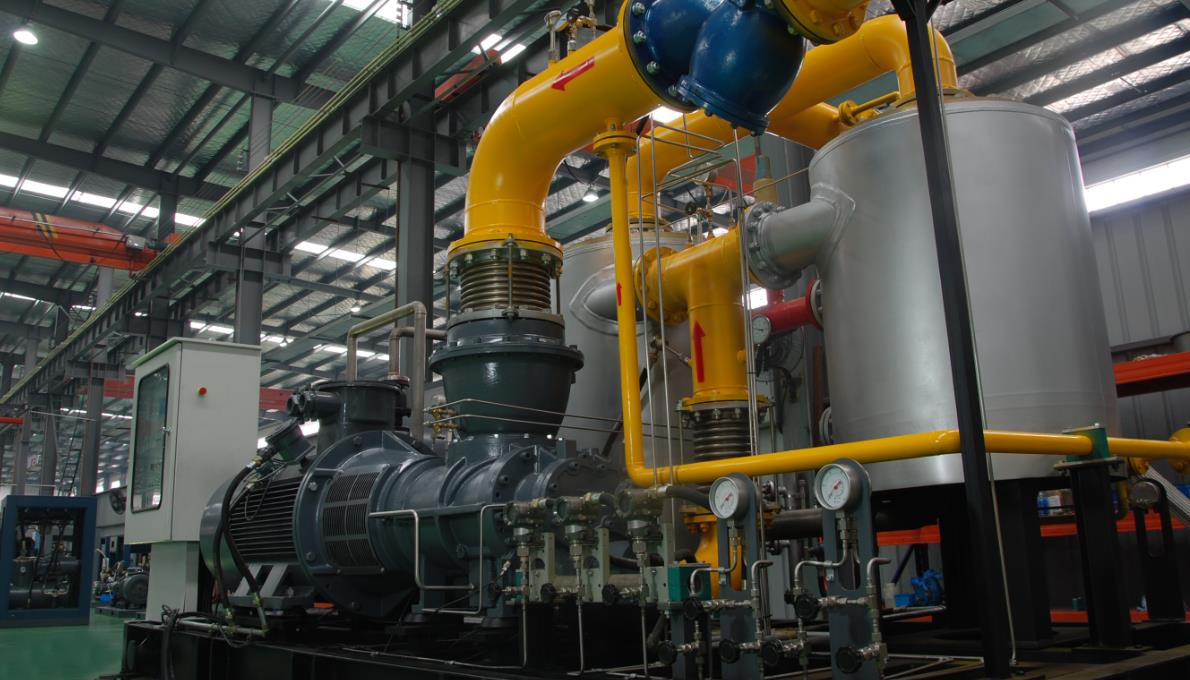
Natural Gas Compressor Types And Prices
Apr 11, 2024 -

Distribution of natural gas compressor manufacturers in China, and price ranges
Jul 15, 2024 -

Price range of compressors for different gases
Jul 17, 2024 -
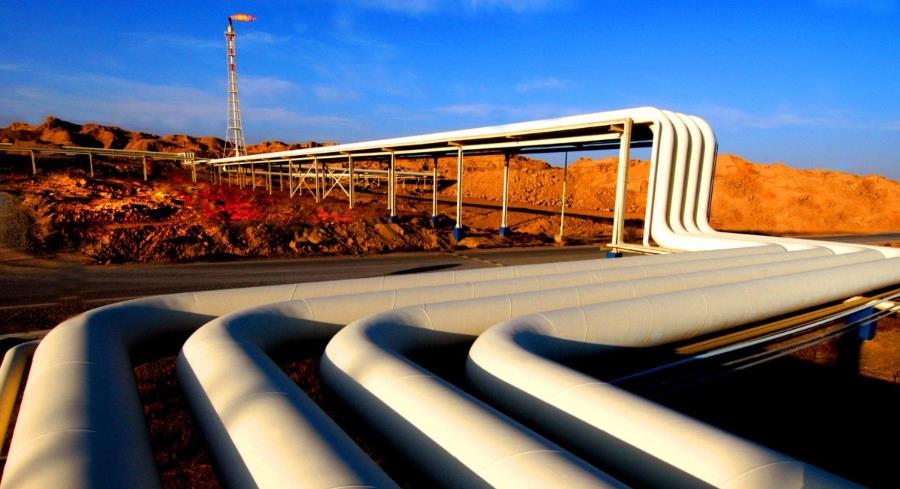
The Price And Production Company Of Natural Gas Recovery And Gathering Compressor
Apr 11, 2024
猫咪社区(catmunity)【乾坤易变】Jun 24, 2024
by:Anhui Shengnuo Compressor Manufacturing Co.,Ltd
Follow Us:
Hydrogen compressors find application in various industries where the compression of hydrogen gas is required. Here are some of the key industries where hydrogen compressors are used:
1. Hydrogen Refueling Stations: Hydrogen compressor play a crucial role in refueling stations for hydrogen-powered vehicles. They compress and store hydrogen gas at high pressure to facilitate efficient and fast refueling of hydrogen-powered cars, buses, and other vehicles.
2. Hydrogen Production: Hydrogen compressors are used in hydrogen production facilities, such as steam methane reforming (SMR) plants, electrolysis plants, and biomass gasification plants. They compress hydrogen gas generated during the production process for storage, transportation, or further processing.
3. Chemical Industry: The chemical industry utilizes hydrogen compressors for various applications, such as hydrogenation processes, catalytic cracking, and ammonia production. Hydrogen is an essential feedstock and reactant in many chemical reactions, and compressors are used to ensure the availability and proper pressure of hydrogen gas during these processes.
4. Energy Storage: Hydrogen compressors are utilized in hydrogen energy storage systems, including hydrogen tanks and underground caverns. They compress hydrogen gas for storage at high pressures to enable efficient and large-scale energy storage, facilitating the utilization of hydrogen as a renewable energy carrier.
5. Aerospace and Aviation: Hydrogen compressors are employed in the aerospace and aviation industries for applications like rocket propulsion systems, fuel cells, and ground support equipment. They compress hydrogen gas to the required pressure levels for efficient and reliable operation of these systems.
6. Metal Production: In certain metal production processes like annealing, hydrogen is used as a protective or reducing atmosphere. Hydrogen compressors are used to maintain the required hydrogen pressure for these applications, ensuring the desired metal quality and properties.

7. Research and Development: Hydrogen compressors are utilized in research laboratories and institutions for various experiments, studies, and testing related to hydrogen gas. They enable researchers to control and manipulate hydrogen gas at specific pressure levels to investigate its properties and behavior.
8. Oil and Gas Industry: Hydrogen compressors are used in the oil and gas industry for processes such as hydrocracking, hydrotreating, and hydrogenation. They compress hydrogen gas for various refining and petrochemical applications, including the production of cleaner fuels and the removal of impurities from petroleum products.
9. Food and Beverage Industry: Hydrogen compressors are employed in the food and beverage industry for applications such as hydrogenation of edible oils, carbonation of beverages, and modified atmosphere packaging (MAP) systems. They ensure the availability and proper pressure of hydrogen gas for these processes.
10. Electronics Industry: Hydrogen compressors are utilized in the electronics industry for applications like the production of high-purity hydrogen gas used in semiconductor manufacturing, thin-film deposition, and other electronic component fabrication processes. They ensure the supply of clean and high-pressure hydrogen gas required for these precision applications.
11. Power Generation: Hydrogen compressors play a role in power generation applications, particularly in hydrogen-cooled generators. They compress hydrogen gas to maintain the required pressure and cooling efficiency in these generators, ensuring their safe and reliable operation.
12. Environmental and Renewable Energy: Hydrogen compressors are used in environmental and renewable energy applications, such as hydrogen fuel cells, hydrogen-based energy storage systems, and hydrogen-based power-to-gas systems. They enable the compression and storage of hydrogen gas for efficient utilization in these clean energy technologies.
13. Pharmaceutical and Medical Industry: Hydrogen compressors find application in the pharmaceutical and medical industries for processes such as hydrogenation of pharmaceutical compounds, hydrogen-based sterilization, and hydrogen gas supply for medical devices and equipment.
【猫咪社区(catmunity)】注册登录
Hydrogen compressors used in different industries may exhibit certain specific characteristics and features to meet the requirements of their respective applications. Here are some key characteristics of hydrogen compressor in different industries:
1. Hydrogen Refueling Stations:
- High-flow capacity: Hydrogen compressors used in refueling stations are designed to handle high flow rates to enable fast and efficient refueling of hydrogen-powered vehicles.
- High-pressure capability: These compressors can achieve high discharge pressures to ensure the proper compression and storage of hydrogen gas in the station's storage tanks.
- Reliability and durability: Hydrogen compressors in refueling stations are built to withstand continuous operation and have robust construction to meet the demands of a high-traffic refueling environment.
2. Hydrogen Production:
- High efficiency: Compressors in hydrogen production facilities are designed to deliver high efficiency to minimize energy consumption during the compression process.
- Flexible operating range: These compressors may have the ability to operate across a wide range of pressures and flow rates to accommodate varying production requirements.
- Hydrogen purity considerations: Compressors used in hydrogen production may have additional features to ensure the purity of the compressed hydrogen gas, such as integrated purification systems or compatibility with purification equipment.
3. Chemical Industry:
- Chemical compatibility: Hydrogen compressors used in the chemical industry may have materials of construction that are compatible with the specific chemicals and gases involved in the process.
- Pressure regulation: These compressors may feature precise pressure control mechanisms to maintain the desired pressure levels required for chemical reactions and processes.
- Safety features: Compressors in the chemical industry may incorporate safety measures to handle potential hazards associated with hydrogen gas, such as explosion-proof designs and leak detection systems.
4. Energy Storage:
- High-pressure capability: Compressors used in hydrogen energy storage systems are designed to compress hydrogen gas to high pressures, enabling efficient storage in compressed gas containers or underground storage facilities.
- Storage compatibility: These compressors may have features that facilitate the integration with hydrogen storage systems, such as built-in storage tank connections or compatibility with specific storage technologies.
5. Aerospace and Aviation:
- Compact and lightweight design: Hydrogen compressors in the aerospace industry are often designed to be compact and lightweight to meet the stringent weight and space requirements of aircraft and space applications.
- High reliability and performance: Compressors used in aerospace and aviation applications require exceptional reliability and performance to ensure safe and efficient operation in critical systems such as rocket propulsion or fuel cell power systems.
6. Oil and Gas Industry:
- Robust construction: Hydrogen compressors in the oil and gas industry are designed to withstand harsh operating conditions, including high temperatures, corrosive environments, and potentially explosive atmospheres.
- Oil-free operation: Compressors used in this industry may feature oil-free designs to prevent contamination of hydrogen gas and ensure the purity of the compressed gas stream.
- High reliability and uptime: Compressors in the oil and gas industry often require high reliability and minimal downtime to support continuous production processes.
7. Food and Beverage Industry:
- Hygienic design: Hydrogen compressors used in food and beverage applications may feature hygienic designs with smooth surfaces, easy cleanability, and materials suitable for food contact.
- Compliance with food safety standards: Compressors in this industry must adhere to food safety regulations and standards, ensuring that the compressed hydrogen gas remains free from contaminants.
- Quiet operation: Compressors used in sensitive food and beverage environments may have noise reduction features to minimize operational noise levels.
8. Electronics Industry:
- High purity compression: Hydrogen compressors in the electronics industry require high-purity compression to prevent any impurities or contaminants that could adversely affect semiconductor manufacturing processes.
- Oil-free and low particle emission: Compressors used in this industry often have oil-free designs and employ advanced filtration systems to minimize the presence of particles or contaminants in the compressed hydrogen gas.
- Precise pressure control: Hydrogen compressors for electronics applications may feature precise pressure control capabilities to meet the stringent requirements of semiconductor fabrication processes.
9. Pharmaceutical and Medical Industry:
- Compliance with regulatory standards: Compressors used in pharmaceutical and medical applications must meet regulatory standards for safety, purity, and reliability.
- Clean and sterile operation: Hydrogen compressors in this industry may have features such as smooth surfaces, sterile seals, and contamination-free designs to ensure the integrity and cleanliness of the compressed hydrogen gas.
- Compliance with GMP (Good Manufacturing Practice): Compressors may be designed and manufactured following GMP guidelines to ensure consistent quality and adherence to industry standards.
10. Research and Development:
- Flexibility and adaptability: Compressors used in research and development environments may have modular designs or adjustable performance parameters to accommodate a wide range of experimental requirements.
- Advanced control and monitoring capabilities: Hydrogen compressors in research settings may feature advanced control systems and data logging capabilities for precise control and analysis of compression processes.
- Safety features: Compressors used in research and development may incorporate safety features such as emergency shutdown systems, pressure relief valves, and advanced monitoring systems to protect researchers and equipment.
These characteristics highlight the specific considerations and requirements for hydrogen compressors in various industries. Manufacturers often tailor their compressors to meet the unique needs of each industry, ensuring optimal performance, safety, and efficiency in their respective applications.
【猫咪社区(catmunity)】平台地址

Hi! Welcome back.
How are you doing?
Let s talk! We’ll provide the perfect solution for you!

Since its establishment, ASC Compressor has focused on comprehensive solutions for Oilfield industry, CNG/LNG industry, Environmental protection, and Industrial compression. It has excellent quality in designing, researching, producing and manufacturing.
- Quick Link > Home > Products > Applications > News > About > Contact
-
Contact Us
- E-Mail: [email protected]
- Tel: +8618098536798/+86(0)5633698699
- Fax: +86(0)5633698699
-
Address:
No. 17 Xingye Road, Economic Development Zone, Xuanzhou District, Xuancheng City, Anhui Province, China






